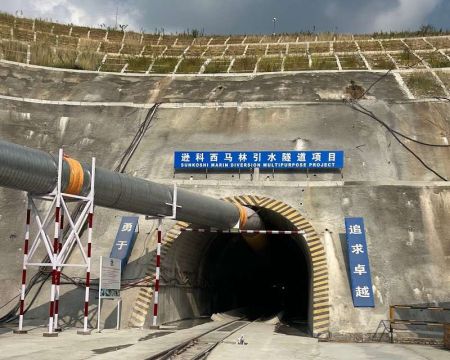Ashoke SJB Rana
President
Nepal Bankers’ Association
The home loan is based on the repayment capacity of the borrower. This depends on the borrower’s income. The borrower’s income should be sufficient to pay the EMI (Equated Monthly Instalment). Under this system, the bank can quickly notice if a borrower defaults on his or her scheduled payment.
How does the banking community look at the overall prospect of the housing industry?
When we interact with Nepal Land and Housing Developer’s Association (NLHDA), they put forth their arguments why the housing developers should be encouraged. Their point is that it promotes infrastructure development that the government has failed to provide such as water, electricity and other facilities that come along with housing standards mentioned in the building code. So, I think this is very positive. It is only the speculative side we need to be wary of.
How much have the banks invested in this sector?
Our estimate is that the banks have invested in average of 25 percent of their loan portfolio into this sector. However, this is an average only. I think that the NRB has put the cap at the right time to prevent the bubble from bursting. We were afraid that the share of housing industry in the total loan portfolio of the banking system might go higher because of the asset price bubble expanding till last year. If you can get regular income and recover your investments in 15 to 20 years, it’s good to invest in this sector. But when the price of the property and the development cost increases and the return comes around in 50 to 60 years that is not economically viable. The mortgage in the west is done usually for 15 to 20 years.
How will the banking sector benefit with the improvement in housing industry?
One of the major aspects of the housing industry is infrastructure development. The NRB has welcomed this because that means value addition but it also wanted to control the speculative part. People were buying property on credit or with loan hoping the price would go up and they would he able to sell it for profit even before paying the entire price. And that was the dangerous part of the entire chain.
A lot of housing and apartment units are unsold. In this market situation how confident are you of the banks recovering the loans they have given to this sector?
The NRB has recently changed its directive and allowed home loans of up to Rs 6 million to be considered as normal loan. This means people who want to buy a house can borrow up to Rs 6 million from the bank and manage the rest from the equity. High-end apartments cost around Rs 10 to 15 million. So, this loan amount is sufficient. There should not be any problem to recover such loans.
As an investor, what kind of policy reforms do you think are required to improve this industry?
I think a little bit of transparency on the part of developers has to come. Just like the banks disclose about their capital, deposit, liquidity ratio and investment, the real estate developers too need to make certain disclosures to the public. The big fear is that the investors might be putting in money where the developers have not put any. It could be all borrowed. Investors want to know the strength of the developers. I think some kind of transparency and disclosure from developers can give confidence to the banks and the individual buyers.
Till recently there was a rule which made it compulsory that all payments exceeding Rs. 5 million in a real estate transaction be made through a bank. Recently the Supreme Court declared that such a rule was illegal. What is your comment on it?
That provision was there because banks felt that dealing in cash is an expensive proposition. We try to encourage use of cheques. It has been now ruled out and it is unfortunate. I don’t think that the real problem was with payment through bank. The problem was with the disclosure of income source. Even if someone comes with cash, they still have to disclose the income source to the Land Revenue office while getting the transaction registered. I don’t think it is a meaningful ruling.
What are the requirements for granting loans to individual buyers of apartments? What is the current trend?
The home loan is based on the repayment capacity of the borrower. This depends on the borrower’s income. The borrower’s income should be sufficient to pay the EMI (Equated Monthly Instalment). Under this system, the bank can quickly notice if a borrower defaults on his or her scheduled payment. It’s not a project loan where there may be an implementation risk that the borrower may not implement the project in time. It’s about buying a home that the developer constructs. The bank has to properly evaluate the developer to minimise the implementation risk. So, I think the housing loan is a very structured product. I think that for the banks, it is an easier loan to recover.
The risk is only when an institution is exposed high on the speculative side of real estate business. If the exposure is not high, the institution may be stuck with a project or two for sometime, but that will not impact much in the overall health of the bank.
What is your suggestion to the real estate developers?
We need to separate the good developers from the others, some of them may not be financially sound. The public should find out who the serious developers are and distinguish them from the inexperienced ones. There are developers who have no engineering knowledge and only believe that it is like a real estate transaction. If there are people who are trained engineers and have business plans like the ones from CE construction, it gives confidence to the entire sector. I think we need to support these people and ignore the others.






















